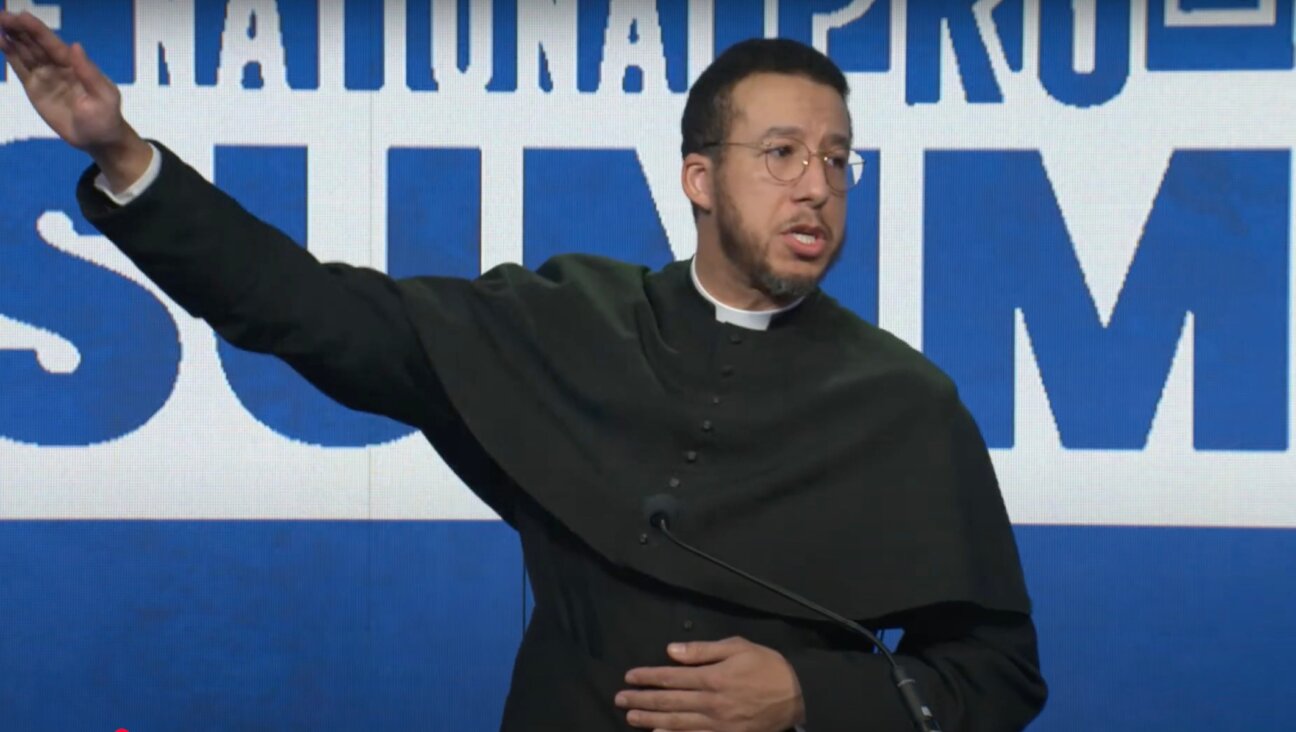George W. Bush’s Reign of Error
A new poll reports that 71% of Iraqis want the United States out of Iraq within a year; half of them think that we should be out within six months. They want us, as President Bush might put it, to “cut and run.”
But our president is nothing if not resolute. He means to stay the course, insisting that Iraq be democratic, even if that means ignoring Iraqis’ desire for our withdrawal. And he will pay still less attention to the finding of the same September poll that 60% of Iraqis support attacks on American forces. Clearly, the Iraqi people are just sore winners.
Never mind that an overwhelming majority of Iraqis believe that our presence in Iraq is provoking more conflict, that it is doing more harm than good. Why pay attention to that if you ignore the American intelligence establishment’s consensus view that our war in Iraq is contributing to the recruitment of terrorists worldwide?
True, more than 50,000 Iraqis have been killed since we liberated their country, as also as 2,711 American dead (2,574 of them since the “Mission Accomplished” banner was unfurled) and 20,468 wounded, but you can’t make an omelet without breaking eggs. The brave Americans and hapless Iraqis who have been killed must not be allowed to have died in vain.
Which brings us to Donald Rumsfeld, vanity personified. In Bob Woodward’s new dis-and-tell book, “State of Denial,” Woodward informs us that Laura Bush finds Rumsfeld “overbearing”; that Andrew Card, Bush’s chief of staff until a couple of months ago, believes Rumsfeld, more than anyone else, is responsible for our postwar troubles in Iraq; that the elder President Bush felt Rumsfeld could not be trusted and that General John Abizaid, the top American commander in the Persian Gulf, says Rumsfeld has no credibility.
But Rumsfeld doesn’t really need credibility. All he needs is President Bush. And he has President Bush.
The Woodward book is one of several that have appeared in recent months that painstakingly recount the details of the horrendous tragedy of errors we know as the Iraq war. The deceptions of both self — “willful denial,” Woodward calls the president’s stance — and the American people are chronicled in the press almost daily, new revelation appearing before old revelation has been fully absorbed. The stage is crowded, the farce goes on.
Six months ago, my hesitant position was that while the war was a mistake to begin with, we’re there and we cannot just up and leave. That would utterly destroy our credibility and make Iraq the new Grand Central for all manner of terrorist elements.
I was wrong. American credibility has in large part already been destroyed, the president’s near-catatonic staying of his rhetorical course notwithstanding. A failed state of war. Nor is there reason to believe that in another week or another month or another six months the situation in Iraq will dramatically improve.
We are not welcome in Iraq, and with good reason. Our presence has meant death and corruption. This is not a case of the good news going unreported, as the administration has lamely claimed. This is a case of mountains of bad news alongside molehills of good. Hence: With or without a fig-leaf pretext, we need to take a deep breath and leave.
Perhaps that means prompting the division of Iraq into three federated states, as Senator Joseph Biden has proposed. Perhaps it means retaining some sort of military deterrent “over the horizon,” as others have suggested. It does not mean, and ought not, “gradual withdrawal,” which would surely both prolong and intensify the agony. Yes, the president would be discredited. In a parliamentary system of government, he would be expected to resign. Ours is, however, not a parliamentary system; indeed, it is increasingly a monarchial system.
The vast expansion of the president’s powers, including not only the new legislation stripping the courts of their power to review his decisions on detention and interrogation of enemy combatants, but also his “signing statements” through which he claims the authority to pick and choose the laws he will enforce, have unbalanced our system.
Instead of a delicate arrangement of checks and balances, we are left with no balance and one big blank check, made out to the president and drawn on we, the people. The expansion of executive power cannot all be laid at the feet of Bush. It is actively defended and promoted by a group of legal scholars around the country.
Among these, perhaps the most prominent is John Yoo, a law professor at the University of California, Berkeley. Yoo, a summa cum laude graduate of Harvard College, a graduate of Yale Law School and later a clerk for Justice Clarence Thomas, also served as a deputy assistant attorney general in the Justice Department, where he was the principal architect in 2002 of a despicable memorandum, later revoked, permitting torture.
All of which is to say that whether the president is the boob Woodward makes him out to be or not, there is a serious plot by very serious people to change the rules of the American game.
That plot, to transform presidential rule into presidential reign, has so far been remarkably successful. The reason for its success has less to do with the brilliance and purposefulness of its authors than with the fact that we are at war, and in wartime, the nation’s disposition is to defer to the commander-in-chief.
The longer the war goes on, the more we may expect our rules to be rewritten, our traditions to be abandoned and our rights and liberties to be curtailed. That, too, must be counted a price of this misbegotten war, and it is far too high a price to pay.
A message from our Publisher & CEO Rachel Fishman Feddersen

I hope you appreciated this article. Before you go, I’d like to ask you to please support the Forward’s award-winning, nonprofit journalism so that we can be prepared for whatever news 2025 brings.
At a time when other newsrooms are closing or cutting back, the Forward has removed its paywall and invested additional resources to report on the ground from Israel and around the U.S. on the impact of the war, rising antisemitism and polarized discourse.
Readers like you make it all possible. Support our work by becoming a Forward Member and connect with our journalism and your community.
— Rachel Fishman Feddersen, Publisher and CEO























